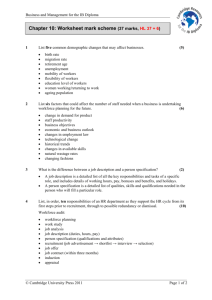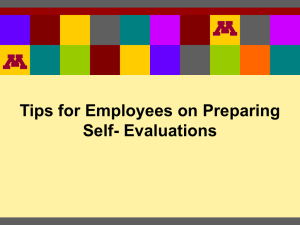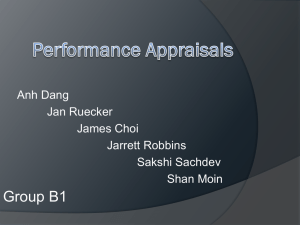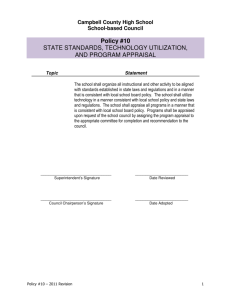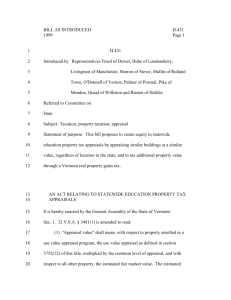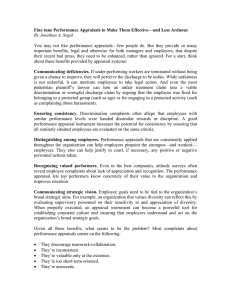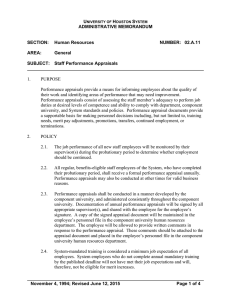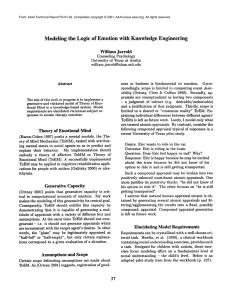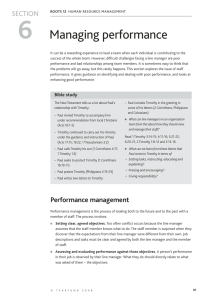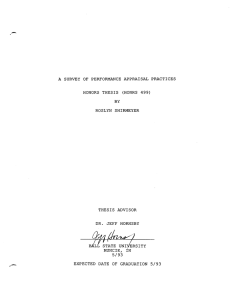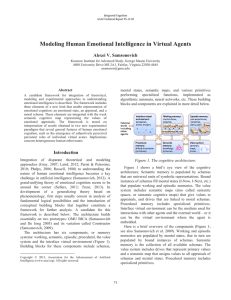Topic 2 Human Resources - churchillcollegebiblio
advertisement
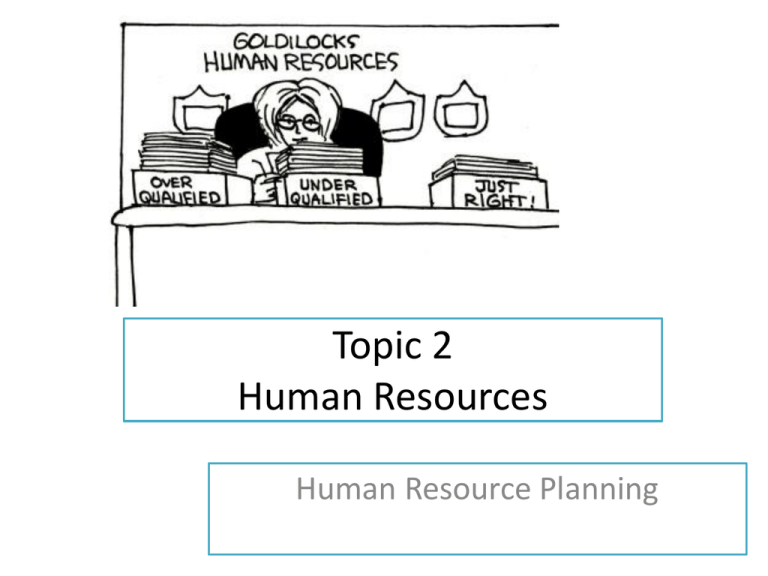
Topic 2 Human Resources Human Resource Planning Learning Objectives • Evaluate strategies for developing future human resources • Discuss different methods of recruitment, training, appraisal and dismissal • Describe reasons for and consequences of changing work patterns and practices • HL – Analyse the impact on business of legal employment rights • HL – Examine how recruitment, training and appraisal can help achieve workforce planning targets • HL – Analyse the consequences of changing work patterns and practices on business • HL – Apply Handy’s Shamrock organisation theory Training Why do you think people need training? What are the benefits of training employees? What are the different types of training? • Induction training to introduce somebody to the organisation • On-the-job training in the work-place • Off-the-job training with a specialist training provider What could be the advantages and disadvantages of these? Performance Appraisal Form Carry out a peer appraisal of the work of one of your classmates! Would you give him/her a promotion or a pay-rise? Why do managers do appraisals? It’s all about performance management! • To assess an employee’s performance • To identify training and development needs • Identify barriers that hinder their performance • Set new targets and goals • Help employees reflect on their work • Praise staff for good work • Assess staff for promotions and pay rises • Should be a continuos process How do we do appraisals? • Essay appraisals are done by your manager • Upwards appraisals are done by you, about your manager • 360 degree appraisals are done by everybody else about you! • A rating system uses a numeric scale to grade your work • Management by Objectives (MBO) checks that you met your objectives • Peer appraisal is when your workmates appraise you • Self-appraisal is when you appraise yourself Dismissal and Redundancy Dismissal • When an employee’s contract is terminated because they didn’t do their job properly, or they broke the contract rules. – – – – Incompetence Misconduct or unacceptable behaviour, e.g. bullying Gross misconduct e.g. coming to work drunk Legal requirements e.g. lying on your resume • Unfair dismissal – When you lost your job unfairly – You might receive compensation or get your job back Dismissal and Redundancy Redundancy / Retrenchments / Lay-offs • When the company can’t afford to pay the worker anymore, or the job position becomes unnecessary. – Voluntary redundancy – Compulsory redundancy • Sometimes staff are redeployed instead of making them redundant.
